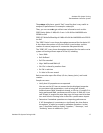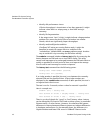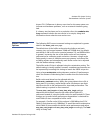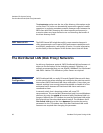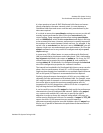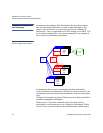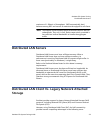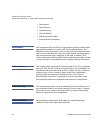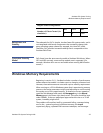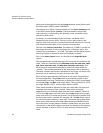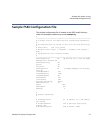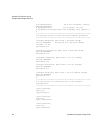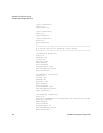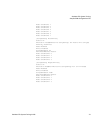
StorNext File System Tuning
Windows Memory Requirements
StorNext File System Tuning Guide 25
Robustness and
Stability
The code path for DLC is simpler, involves fewer file system stacks, and is
not integrated with kernel components that constantly change with
every operating system release (for example, the Linux NFS code).
Therefore, DLC provides increased stability that is comparable to the
StorNext SAN Client.
Consistent Security
Model
DLC clients have the same security model as StorNext SAN clients. When
CIFS and NFS are used, some security models aren’t supported. (For
example, Windows ACLs are not accessible when running UNIX Samba
servers.)
Windows Memory Requirements
Beginning in version 2.6.1, StorNext includes a number of performance
enhancements that enable it to better react to changing customer load.
However, these enhancements come with a price: memory requirement.
When running on a 32-bit Windows system that is experiencing memory
pressure, the tuning parameters might need adjusting to avoid running
the system out of non-paged memory. To determine current operation,
open the Task Manager and watch the Nonpaged tag in the Kernel
Memory pane in the lower right hand corner. This value should be kept
under 200MB. If the non-paged pool approaches this size on a 32-bit
system, instability might occur.
The problem will manifest itself by commands failing, messages being
sent to the system log about insufficient memory, the
fsmpm
mysteriously dying, repeated FSM reconnect attempts, and messages
Largest Tested Configuration
Number of Clients Tested (via
simulation)
NFS CIFS DLC
4 4 1000



